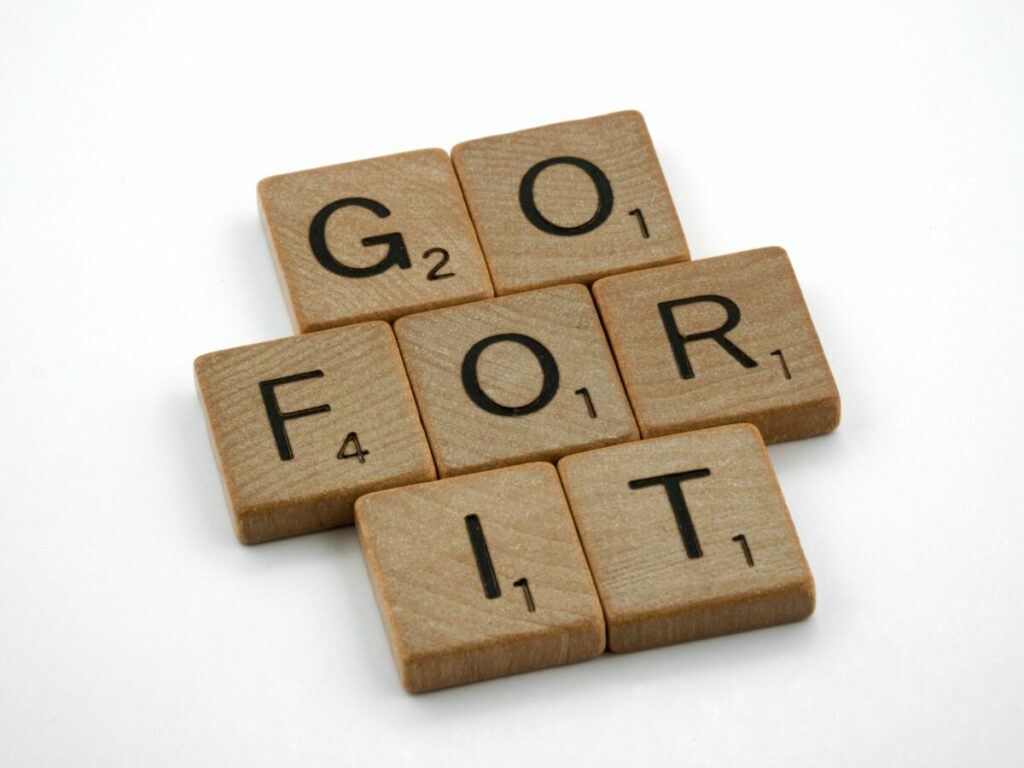When you have an open position, the pressure is high to fill the position quickly and with the right individual who has the skills and experiences that the job demands. It can feel like a relative pressure cooker situation, but good interview questions are the recipe for success.
Asking the best interview questions will help you determine if you have the right candidate in front of you. Failure to assess the individual correctly could mean interviewing the best talent and not even realising they are in front of you. The hiring process drags on unnecessarily, and the line manager will ultimately end up with a make-do employee instead of a star.
So, what are the key questions to ask interviewees, and why?
Interview questions to ask employees
Here are the top ten questions to ask a candidate in an interview. You can use these interview questions to create the foundation of your interview structure, and we recommend that hiring managers enter interviews with the job description in hand. The document is a valuable resource indicating the important qualities, skills and traits desirable for the role.
1. Why do you want to work for our company and what do you know about us?
Company information is readily accessible online, so there is no excuse for candidates not to do their interview preparation. This question will immediately show if a candidate understands your business’s activities and if they are genuinely interested or not.
2. Tell me about your current job?
The candidate has an opportunity to use their communication skills by responding to this open-ended question. Listen carefully, and you will discover more than what is written on their CV and if the candidate can sustain good employer-employee relations.
3. What skills and abilities will you bring to this role?
If the candidate is genuinely interested in the role and has read your job advert, they should respond with the skills and traits outlined in your job description. The best responses are those that don’t just state the skills but describe how the candidate uses them.
4. Can you tell me something about yourself that is not on your CV?
The interviewee could respond by telling you something about their professional or personal history and can tell you a lot about their passions and values. The answer will help you decide if the individual is a good fit for your company culture.
5. What are your biggest weaknesses?
For decades this has been the most popular interview question, and for a good reason. You will uncover any weaknesses that might conflict with excelling in the role and hear if the candidate has the emotional intelligence to identify and work on their shortcomings.
6. Tell me about a time when you worked with a colleague who had a different work style or personality to yours?
Interpersonal and communication skills are vital in most companies. The interviewee can demonstrate these along with their problem-solving skills, collaboration, and ability to compromise and find common ground.
7. Tell me in more detail what motivates you at work?
This question can induce a valuable discussion that highlights the applicant’s internal motivations and if these are something your role will fuel.
8. Where do you see yourself in five years?
Consider whether your company will be able to offer the opportunities to satisfy the individual’s career aspirations. If your company can’t, you might have a candidate in front of you looking to move on to another company, which means the individual isn’t going to be a long-term company asset.
9. What is something you would like to go back and change in your past?
The interviewee has the chance to show you if they can learn from their life lessons and if what they have learnt will be beneficial to your company and when working in a team.
10. Do you have any questions?
This question is typically the final one, which wraps up the interview. Interested candidates will usually have prepared a few questions ahead of the interview. It is an opportunity for candidates to assess further if you are the right employer for them. If the interview was long and detailed, it is okay if the interviewee had all their questions answered during the conversation.
Further excellent general interview questions and variations of those above include:
- Why did you pursue this career path?
- We have discussed this role in-depth now, would you still apply, and why?
- I can see an employment gap on your CV. Could you tell me about that time?
- What have you learned and liked about our company so far?
- Does this job role line up with what you thought it would be?
- Should we hire you, what do you think you will find most challenging?
- What in this field are you passionate about?
- You have plenty of experience in sales. Why are you thinking about moving into customer services and do you foresee any difficulties making this transition?
- How did you hear about this role?
- What do you already know about our company?
- Do you have any questions for me?
- What are you core professional strengths?
- How do you define hard work?
- Explain to me something that is complicated, but you know well?
- Tell me about the smartest person you know?
Resources for hiring the best employees
There are many elements in the hiring process, aside from determining good interview questions to ask. If you are looking for recruitment solutions, check out these resources and articles:
Top articles:
- How to interview candidates
- The formatted interview structure
- How to conduct phone interviews
- How to conduct a remote interview
- Should salary be discussed in an interview
- Job interview questions and example answers
In these articles you will discover practical advice on issues such as poor interview questions and how to promote your employer brand to ensure your job offer is accepted by the job seeker you want to hire.
Recruitment solutions:
- Job description template
- Job advert template
- Flat fee recruitment solution
- Branded advertising solution
These hiring solutions will help reach and attract high-quality candidates at a reasonable cost.
Strategic interview questions

Strategic interview questions include behavioural and situational questions, along with those that will determine if the person on the other side of the desk has communication skills, the ability to learn and adapt, and work as part of a team.
Here we have grouped examples of these questions to help you construct your interview.
Questions to assess communication skills
1. Tell me about a time you had to share bad news with someone?
2. How might you overcome the challenges of communicating as part of a remote team?
3. Have you ever struggled to communicate with a colleague and how did you overcome this?
Questions to assess adaptability and learning skills
1. If your line manager dislikes your latest work, what would you do?
2. Tell me about a time you took on a new role and how you adapted to it?
3. What would you do if a manager returned to you a project you thought was completed, with lots of comments and corrections?
Questions to assess team working skills
1. Were you ever the member of a team that failed and what did you learn from this?
2. Describe to me an instance when you had to work with someone you did not get along with?
3. Tell me about a time you collaborated on a project, what your role was, and what you achieved?
Questions to assess problem-solving skills
1. How do you decide if you should solve a problem yourself or ask someone for help?
2. Describe a time when you foresaw a problem and what you did to avoid it?
3. Tell me about serious work challenges you have experienced, what the challenges were, and how you overcame them?
Questions to assess a culture fit
1. Tell me about something you liked at your prior company, that you would like to have here as well?
2. What achievements do you hope to secure here in the next 6 months?
3. Tell me about the environment where you are most successful?
Questions to assess a person’s creativity
1. Can you describe to me a creative solution you formulated to solve a problem?
2. Tell me about one idea that we could introduce here?
3. Where do you gain inspiration to produce your work?
Questions to assess managers and leaders
1. Tell me about your management and leadership style?
2. How do you approach delegation and ensure all work tasks get completed?
3. How would you handle an employee in your team that always opposes you?
Behavioural questions
1. If you were to miss a deadline, how would you handle the situation?
2. What would you do if you were given an unfamiliar task to do?
3. Describe an instance when you had to work with a difficult co-worker?
Situational questions
1. What would you do if you discovered a supervisor was breaking company policies?
2. How would you handle a situation where your department head gives you a job that is impossible to complete or meet its deadline?
3. If an irate customer insisted on speaking with your manager, but refused to give a reason, what would you do?
Interview questions you should avoid

Interview questions that you should not ask include unlawful interview questions and cliche interview questions. We will take a look at these individually to give you a better idea of each.
Illegal interview questions
Bad questions to ask in an interview include those that are illegal or considered discriminatory. Asking one of these questions could damage the reputation of your brand and you might even find yourself in court.
These interview questions and answers are problematic because they could put a candidate at a disadvantage to others. Many employers ask them accidentally or without bad intent, so it is a good idea to review the topic before interviewing a candidate.
The questions you should not ask or form part of your decision-making process include:
- What is your age? / How old are you?
- When did you graduate?
- Are your married or planning to get married?
- Are you planning a family?
- Have you ever been arrested?
- Have you ever used drugs or alcohol?
Questions surrounding age, either direct or indirect, are a protected characteristic of the Equity Act 2010. The best approach is to refrain from asking about the candidate’s personal life or topics that are not related to the job.
You can read further on this topic by reading our article; questions not to ask in interviews.
The advice above is not meant to be considered legal advice. This is simply our understanding of UK employment law. We accept no liability nor accuracy to the above.
Cliche interview questions
There are many interview questions to ask that have been around for decades. Top candidates will have prepared for these and they are discussed heavily online. Furthermore an applicant might be tempted to do some research and present an untruthful answer.
If you want to avoid asking these questions when conducting interviews, and see how a candidate can think on their feet, consider these alternatives:
Cliche: Why should we hire you?
Alternative: If we hired you, how would you help us with this project?
Cliche: Where do you see yourself in five years?
Alternative: If we gave you the job, what would be your priorities in the first three months?
Cliche: What is your greatest weakness?
Alternative: Tell me about a failure you had with your previous employer?
Cliche: How many golf balls can you fit in a school bus?
Alternative: What would be a potential solution to X?
Interview process and interview tips

Use structured interviews
Structured interviews are an excellent approach to assessing candidates and predicting their future job performance. A structured interview process has three core elements:
- You pose the same questions to each candidate.
- You move from one interview question to the next, in the same order.
- You assess answers using a standard rating system.
To make this recruitment process work, you must ask the same questions, else you will not be able to make an objective comparison or aid your decision making process.
By following these guidelines, you overcome obstacles such as decision making fuelled on your gut feeling or harmful biases. When you have your list of questions to ask candidates, you should determine your rating system, and what each score means. Scoring the best answers can be on a 1-5 scale, 1-10 scale, or even a simple yes/no scale.
If you have a recruitment team, it is vital that all interviewers use the same set of interview questions to ask, whether they are behavioural questions, situational questions, or competency based interview questions.
Utilise the job description
If you want to determine the candidate that gives the best answers, start the job interview with the job/role description in front of you. A well crafted job overview is a record of what you are seeking and the basis to evaluate candidates.
The role’s description should include the elements needed for the position, such as soft skills, leadership skills, personality traits, their stage of professional development, and what would make a candidate a culture fit for your company.
A well crafted role overview will not only help you during interviews, but aid candidates in their job search. In many ways, it is the key to unlocking the door that could be holding a candidate back from completing a job application.
Put the best interview questions into groups
Put the interview questions to ask in groups to help your interview flow and transition from one line of questioning to another. It would help if you grouped questions about soft skills together and use further groups such as situational questions, current company questions, qualifications, and follow-up questions.
Ask probing questions
Probing interview questions to ask include those that start with tell me more about or how would you feel about. These probing questions prompt answers that will show you if a candidate has good self-awareness.
A good answer will see the individual draw from their past experiences and knowledge base. They should be able to back up their answers and quantify their skills.
Use the STAR interview technique
The STAR method of answering questions is a good approach for candidates, but as an interviewer, you can also make use of the same principles. The STAR technique includes four elements; the Situation, Task, Action, and Result.
Creative candidates and well prepared candidates should touch on all four elements when answering situational questions. To ensure you get the most complete answers and the greatest insight into candidates, you should consider if the applicant has touched on all four, and if not, ask a further question about the missing element.
STAR questioning example
Initial question
Describe an instance when you dealt with a difficult colleague?
Initial answer
When I needed to create a marketing campaign for a new service that my company wanted to introduce, I had to work with the company’s graphic designer. The designer had worked for the company for many years and because I was relatively new at the time, the designer disregarded the suggestions and requirements I had. I talked to my department manager about the instance, who told me I would have to find a way to work with the designer. I decided to have a meeting with the graphic designer to discover more about his vision, why he had such a vision, and explain the reasons behind my suggestions and requirements.
Answer evaluation
Considering the STAR method, the interviewee has described the Situation and the Task. They have also informed you of the Action, but they have not relayed the Result. You should probe further here and offer a follow up question.
Follow up question
And what was the result of your meeting with the graphic designer?
Follow up answer
The graphic designer appreciated that I had a follow up meeting and gained an insight into my understanding and passion. In the end, we managed to find common ground, deliver an exceptional marketing campaign, and gain praise from the company’s CEO.
STAR method conclusion
By utilising the principle of the STAR technique, you have been able to ask for the missing information. If you failed to ask the follow-up question, you would have no idea as to whether the candidate is capable of delivering an adequate solution to the problem. The Action was certainly appropriate to the situation, but was the candidate able to deliver a Result?
Evaluate the candidate
Asking your set of questions is one task, evaluating the candidate is another. You will need to decide if the candidate was good or bad, has the right skills and qualifications, is a culture fit for your company, and has the desirable personality traits you are seeking.
The first step in evaluating candidates is to take notes and document their answers. It is best to do this during the meeting or straight after candidates leave. Let candidates know at the start of the meeting that you will be taking notes. Taking generic notes is something to avoid because these will not help you recall the candidate, later down the line, and when you are comparing candidates against each other.
An example is; the candidate is a poor communicator. It may be more useful in this situation to note something on the lines of; the candidate strayed off topic many times.
Factors to consider when evaluating a candidate
The candidate’s attitude
Listen to the tone of each answer. Ask yourself if the tone suggests the interviewee is arrogant or condescending. You may get the ideal answer, but will the individual fit the culture of your company and team?
Does the candidate listen?
The interviewees that listen carefully will give you the best answers. If the individual misunderstands your intent or interrupts you during the meeting, then these actions denote that the person is not a good listener.
Is the candidate authentic?
Many of the answers you will hear from interviewees sound the same or are similar to each other’s. To spot the best candidate, look out for answers that are unique or stand out as honest and heartfelt.
Avoidance
Is the person in front of you avoiding a topic or answering a particular set of questions? If the individual goes off the topic, this might be inadvertent or intentional. To tackle avoidance, and determine if it is intentional or not, bring the person back to the topic by asking a more specific question. If the person is unable or unwilling to discuss the topic, this is a red flag to spot.
Are the interviewee’s answers concise and simple?
Some people have a tendency to ramble on or start talking about something else, other than the answer to your question. Is the person in front of you giving a lot of irrelevant information, it might be a red flag indicating how productive and effective the employee will be.
Listen for examples
When you are looking for an outstanding employee, a fantastic indicator is the quality of the examples and stories they relate. If the individual has few stories to tell, or their examples are vague and off topic, they may be made up or perhaps this prospect does not have the skills and work experience you need. However, before writing the interviewee off, ask a follow-up question and gain some valuable clarification.
Consistency
Here we want to evaluate whether the actions of the person correlate to what they say they can do. For example, if the individual says they are an excellent communicator, but can’t convey a story or goes off topic, there is another red flag for employers who want candidates with this specific skill.
Conclusions from the best interview questions to ask
There are two crucial steps to interviewing candidates and getting a better idea of the big picture; good preparation and active listening.
The steps to creating a recruitment process include:
- Prepare a job overview
- Create a job advert
- Prepare the questions to ask candidates
- Prepare an introduction to yourself and the company
- Practice deriving your introduction and asking your questions
- Review the CVs of candidates
- Conduct your interviews
- Compare other candidates using a predetermined scale
Remember that the candidate is also interviewing you, which is something to ponder upon if you want the best candidate to accept your job offer.
Interview questions FAQs

If you are searching for that one candidate that is on the same page as you, and still have questions, you will find the answers here in our FAQs or in one of the hiring manager resources mentioned above.
There are many interview questions to ask that work for most candidates and circumstances. Five excellent questions for the initial interview include:
1. Why were you interested in finding a new job in the first place?
2. Tell me how your colleagues describe you?
3. Tell me about an interesting accomplishment from your last job?
4. How have you found working in a team and how will you fit in as a new hire?
5. Tell me about your weak points?
If you are looking for ten good interview questions for assessing job seekers, these will help you make a solid hiring decision:
1. How would you approach getting a better understanding of your colleagues and their viewpoints?
2. Tell me about the skills you have that will help you meet our job requirements?
3. What makes you a good potential employee?
4. What makes you the smartest person in the room?
5. What would your previous boss say about you?
6. Tell me about your problem-solving abilities?
7. Why are you leaving your current employer?
8. Tell me how you have prepared yourself for the work environment? (students and graduates)
9. How do you ensure you meet tight deadlines?
10. What are your salary expectations?
1. Tell me about your management style?
2. How do you achieve great results?
3. Why do you think you will be a culture fit for our company?

